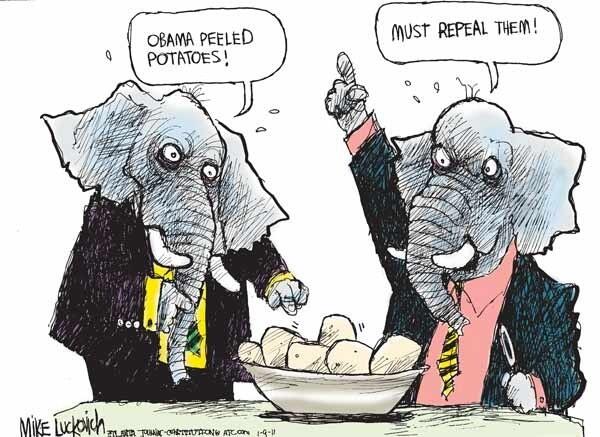I am a Republican feminist.
In saying so, I know I will receive scorn from both sides of the political spectrum; some conservatives will conflate my belief that the sexes are inherently equal with the progressive allegation that they are the same. Conversely, some liberals will posit that my acceptance of traditional family structures, individual choice, small government, and capitalism inherently undermine feminism’s tenets.
In recent years, the political left has increasingly co-opted feminism and the discourse surrounding it, while conservative women have strayed from using the term. In 2020, just 42 percent of Republican women self-identified at least somewhat as a feminist, as opposed to 75 percent of Democrat women. Furthermore, 45 percent of Americans saw the term as polarizing.
While most Americans do not identify as feminists, most support the “social, political, legal, and economic equality of the sexes” and believe that the US has yet to achieve gender equality. In part, this disconnect is a consequence of Americans conflating modern iterations of feminism with the movement’s fundamental teachings.
Feminism is actually a bipartisan concept that denotes a truth about the human experience, not one that fluctuates to match whatever is politically convenient.
Feminism’s Fundamentals
First-wave feminism strived for legal equality, property rights, and women’s suffrage. Beginning with the Seneca Falls Convention of 1848, feminism premised itself on democratic principles and the classical liberal tradition.
Author and activist Betty Friedan galvanized second-wave feminism with her book The Feminine Mystique, which exhorted women to embark on self-actualizing careers and lead life beyond the home. Her experiences as a housewife in the fifties and sixties—published for the world to see—transformed the American workplace and consciousness by illustrating the “problem that has no name”: a lack of fulfillment and boredom from staying home.
By the early 1970s, groups like the National Organization for Women codified traditional feminism into American culture. However, a subset of second-wave feminists deviated from the movement’s established mission. While the coalition largely focused on employment reform, a minority promoted radical ideas that culminated in the sexual revolution.
Spurred by Kate Millett’s fanatical book Sexual Politics, the movement called for the erosion of the family and proposed that solely social constructions, not biological divergence, accounted for differences between the sexes. Traditional feminists lamented the shift, believing like Friedan that “the women’s movement was not about sex, but about equal opportunity.”
Supporters of the sexual revolution feigned that the movement served as feminism’s natural progression, despite polls illustrating that most American women supported “efforts to promote women’s status,” not women’s alleged sexual liberation.
Feminism’s final iterations—embodied by the third- and fourth- wave movements—embrace identity politics. These identitarians subvert many of the fundamental principles that underpin both traditional feminism as well as the American values that freed women in the first place.
The American Declaration of Independence was unique in its recognition of the self-evident truths “that all men are created equal, that they are endowed by their Creator with certain unalienable Rights.” These rights were not granted to Americans by the founding documents, but rather they acknowledged that these entitlements are God-given.
While the Founding Fathers did not extend said entitlements to all Americans—notably women and people of color—they laid the groundwork for the emancipation of all persons. And traditional feminism, unlike its later iterations, took up the framers’s mantle.
Foul Feminism
Radical third– and fourth– wave feminism disregards American equality premised on natural rights theory, which acknowledges that all persons have differing abilities and the ensuing right to use them freely.
Equity feminists undermine natural rights by believing that the sexes should have not just the same rights, benefits, obligations, and opportunities, but also the same outcomes. And in doing so, these ideologues ignore that sometimes equitable outcomes are not ideal: men and women have distinct preferences with consequentially disproportionate outcomes.
Radical feminists’s emphasis on equality of outcome rather than freedom puts the third- and fourth- waves in opposition to traditional American values. Conservatism is not at odds with feminism. Rather, it pushes back against feminism’s more recent and more radical manifestations that subvert individualism and freedom.
The left’s proliferation of equity rhetoric and their rejection of traditionally feminist ideals ostracizes conservative—and oftentimes more traditional—women. Yet, it is urgent that Republicans maintain the label’s true definition; when Americans give progressives the power to define terms in accordance with their ever-shifting standards, we allow the left to frame the debate around their values rather than shared American standards.
In the 2016 election, Republican presidential primary candidate Carly Fiorina endeavored to reclaim the movement, defining a feminist as “a woman who lives the life she chooses.” Conservative feminism has long emphasized the importance of choice and autonomy. Republican women like Jill Ruckelshaus and Audrey Rowe Colom fought for equal rights from the lens of freedom, a practice modern conservatives should emulate.
Conservatives need feminism to ensure that we uphold the standards we claim to exalt. Gender equality efforts require massive cultural shifts that are only possible with overwhelming support. The narrow and deceptive politicized definition of feminism does everyone a disservice by inhibiting collaborative efforts where liberals and conservatives do agree.
Feminism is not a conclusive ideology. Believing in the equality of the sexes is not predicated on considering abortion morally acceptable or subscribing to baseless equity rhetoric; it is not conditioned on supporting lackluster due process on college campuses or any other liberal policy outcomes.
Feminism fundamentally describes those who believe that all human beings have the same inalienable rights because they are inherently equal.
I am a feminist because we are all entitled to the same liberties as God’s children; because I am a conservative, not in spite of it. I will continue to reclaim the term’s authentic definition by calling myself a feminist.
But, if rhetoric surrounding gender equality does not become more politically inclusive and rooted in reality, there is a chance that a major segment of the population will abandon feminism and its indispensable aims.
As a society, we must stop politicizing terms that denote fundamental truths. All that results from doing so is a rejection of a movement and of the people who made fundamental societal progress that allows us to live as we do today.
Americans ought to remember that feminism is about procuring equal rights regardless of sex, not implementing progressive policy outcomes that most Americans do not support. Terms like feminism set the tone for and define American culture. Conflating feminism with progressivism undermines equality and inhibits bipartisan efforts to end sexual discrimination. Conservatives can no longer sit back and allow liberals to set the rules of the game; liberals cannot prevent the majority of American women—who support some level of traditional values—from participating and defining the movement developed to protect them.
Equality is a ubiquitous and non-discriminant aim, and it’s about time we start acting like it.



